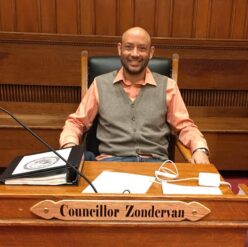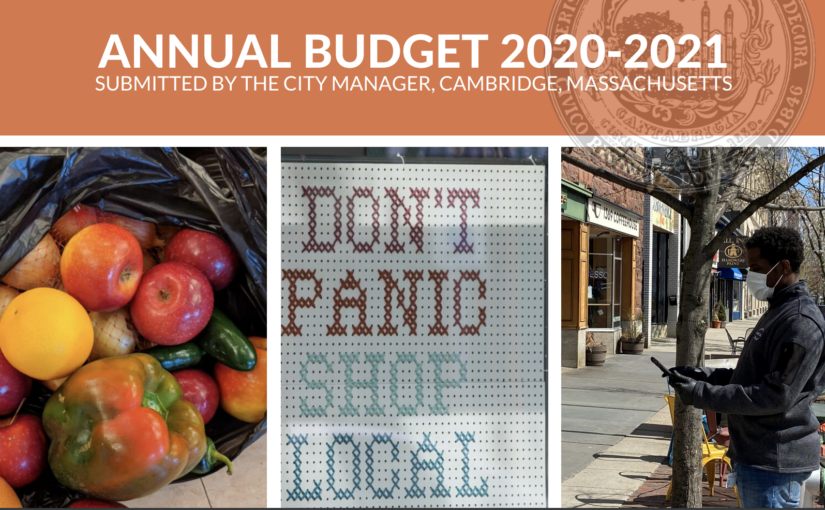This was the most discussed budget process in recent memory, one that will surely be remembered for its uncertainty caused by the COVID-19 pandemic, the resulting economic recession, and the national uprising against the racial injustice and police brutality that has plagued American society for far too long. It will also be remembered for how difficult it is to undo centuries of racism, even here in liberal Cambridge.
Start with the intro (after the picture) or jump to my thoughts on:
- Cambridge Police Department
- Cambridge Public Schools
- IT Department (municipal broadband)
- A look ahead (next year’s budget and beyond)
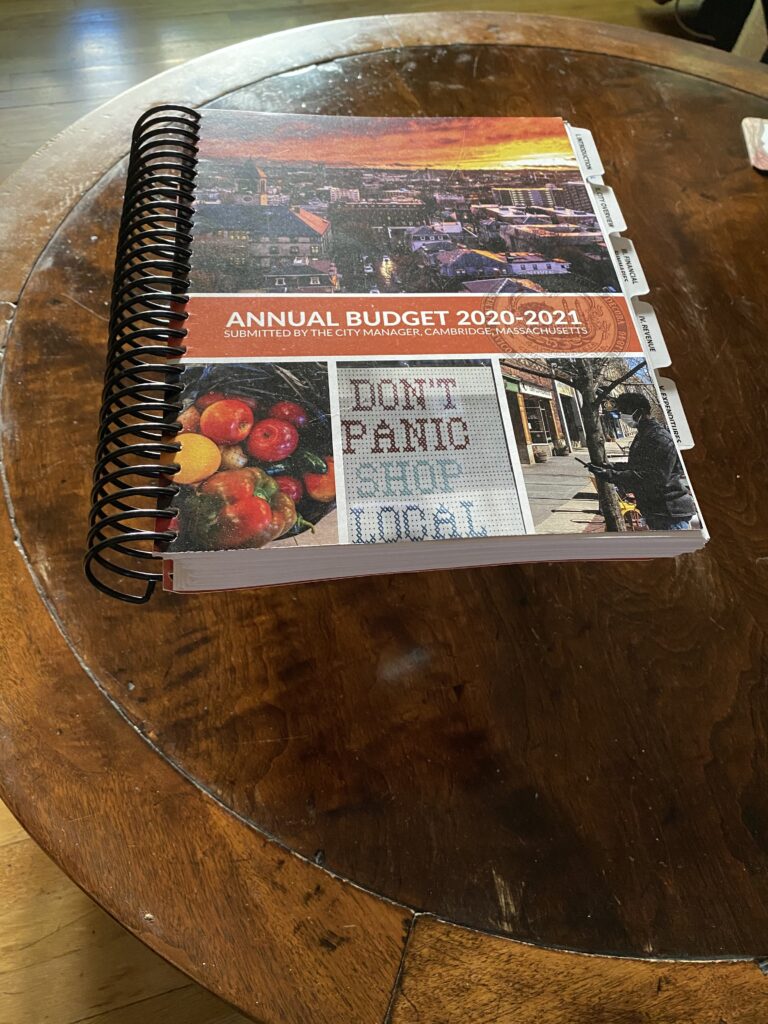
We rightfully gave the most scrutiny to the Police Department this year, but the entire budget is racist. To be clear, when I say that a department or institution is racist, I do not mean that the individuals working for or in that institution are individually bad people. That is a favorite misunderstanding of those who want to ignore racism. Unfortunately, that denial is the heartbeat of racism, as Ibram X. Kendi says. As a society we need to correctly understand the word ‘racist’ not as a slur or an insult, but as a labeling of the outcomes that are produced.
I want to be clear and upfront about the fact that I voted against this budget, just as I did last year. This post contains my reasons for doing so, including my take on some individual sections that need your attention. Despite my vote, I appreciate all the hard work that goes into preparing our budget, and I recognize that we’ve made progress since last year. The fact that we are now openly and more correctly talking about the racism that pervades our entire city budget is progress in itself.
As the late African American writer James Baldwin said, “Not everything that is faced can be changed. But nothing can be changed until it is faced”. For the first time in a long time we are facing our racism as a society, and doing the work to change it. I’m committed to spending the next 12 months making sure we are not faced with another racist budget next year.
Approving the budget is the single most consequential decision the council makes each year, and our process needs to be rebuilt from the ground up, starting with the fact that we don’t even begin formally discussing the budget until weeks before it must be decided on. To move forward in a way that is explicitly anti-racist, we must truly examine every department in our city including through an enhanced, extended budget process with more public input. I am committed to doing this work, and this post also looks ahead to how we will get there. As always, do not hesitate to reach out directly to discuss anything on your mind.
Cambridge Police Department
The murder of George Floyd on Memorial Day 2020 was the spark that set the country ablaze with righteous anger. This has become a long overdue national reckoning on racial injustice, and Councillor Sobrinho-Wheeler and I made sure Cambridge took part in the conversation to fundamentally rethink the role of policing in our cities.
In solidarity with the Movement for Black Lives (M4BL) and their national call to defund the police, we introduced a policy order asking the City Manager to re-allocate $4.1 million away from the Cambridge Police Department and towards high-priority community needs in other departments.
$4.1 million is the difference between the projected expenditures for the police in the fiscal year that ended on June 30, 2020 ($61.8 million) and the proposed budget for the police department starting the next fiscal year on July 1st, 2020 ($65.9 million).
In response to COVID-induced revenue shortfalls, the City Manager proposed a budget that left many council priorities in various departments glaringly unfunded or only partially funded. Examples included a housing stability case manager in the City Manager’s office, a social worker at the Central Square library, and several much needed preschool teachers. At the same time, the proposed Police Department budget included many vacant positions that we can easily live without, totalling millions of dollars.
Our proposal was the opening to a conversation about how to address this very visible and immediate injustice in the FY21 budget, and how to re-prioritize our spending to address the long neglected needs of Black people in our community. Fueled by the energy of the moment, it gained far more attention than we were expecting, or than anything else I’ve seen in my 2+ years on the council so far.
We received thousands of emails, and over 400 people signed up to speak during public comment on Monday June 8th, causing the council to limit comments to 1 minute each and to defer the rest of the meeting to Wednesday, June 10th. The emails and comments we heard that Monday were almost entirely supportive. We heard clear demands from Black leaders on what is needed to restore health & safety to our community. I recognize that the stakes are high for any Black person who speaks on the topic of policing, and I appreciate the many brave voices who did so despite the risk. It was also heartening to have so many white allies stand in solidarity with the proposal, many of whom had never weighed in or spoken up before.
The proposal also created legitimate fear and confusion among some residents who understandably wanted to make sure there weren’t cuts to things like the cadet program, school resource officers, or crossing guards. I spent a great deal of time meeting with members of the Black community who had these and other concerns in an effort to provide clarity and build even more consensus. I came to the Wednesday continuation of the council meeting ready to introduce amendments that emerged out of those conversations, and they were ultimately incorporated in the final version of the policy order at the June 15 meeting.
These amendments would go on to form the backbone of the council’s eventual compromise: a promise by the City Manager to delay $2.5 million of planned hires within the Police Department in order to immediately fund some of the aforementioned positions that had been placed on hold. On the surface, this compromise represents a huge victory. As just a small example of that, there is now the potential for a housing justice case manager to begin working immediately instead of next April. With an eviction crisis looming, that will make all the difference for many individuals and families struggling to navigate the system. I appreciate the City Manager’s compromise proposal and the willingness of my colleagues to unite around it as an important step forward towards justice.
At the same time, the compromise we reached did not change the proposed budget in any way. While we succeeded in shifting the immediate hiring priorities away from policing, those positions will continue to exist, and they will be filled as soon as the current moment passes. This tactic is similar to Mayor Walsh’s approach in Boston: a splashy $12 million reallocation away from the police overtime budget loses some of its luster when you realize that money can simply be moved around later in order to cover whatever overtime spending actually occurs. These sleights of hand have undoubtedly produced immediate victories, and given the short time we had, we got as much as was possible in this year’s budget cycle.
But even making these modest, critical, and broadly supported improvements would prove to be challenging. Shortly after the City Manager proposed the $2.5 million compromise, he gave the floor to our Police Commissioner, who was put in the awkward position of defending his department’s budget after his boss had just proposed a reallocation. Commissioner Bard, who is African American, was appointed three years ago. He holds a Doctorate in Public Administration and has a real expertise in kinder, gentler policing, which he has brought to the Department. He was understandably upset and indignant about the calls to defund the police in Cambridge, but he unfortunately overplayed his hand in an attempt to deflect criticism of his Department and the proposed funding change.
The Commissioner’s remarks began with insulting both the white allies and the Black voices who spoke during public comment when he said that he didn’t hear “authentic voices,” just “a bunch of people looking for their ‘I’m a black ally’ receipts, hoping they could somehow use it to pay off white guilt.” In fact, the council heard from more Black people on this issue than on any other issue this term. Giving public comment can be very intimidating, especially the first time, which was the case for so many who spoke. It is critical to welcome and appreciate everyone who takes the time to participate in our democracy, and to encourage them to keep coming back. As a council we need to hear from the people and so it was difficult for me to hear them be so disrespected.
When he implied that the motion makers displayed “arrogance” by not consulting him, I objected, pointing out that in fact I had reached out to him and gotten no response. He was also assuming intent, which we are asked to refrain from doing during council deliberations. Finally, it is entirely appropriate for councillors to scrutinize the budget and make proposals without consulting individual department heads. Our job is to provide oversight, not micromanagement.
He went on to lay out a large list of programs that, in his view, would have to be cut if the council did not approve the proposed budget increase. As a reminder, even with the reallocation factored in, our proposal would fund the Department at the same level of spending as the previous year. Additionally, the manager had just finished stating that we could avoid cuts simply by not filling some of the vacant positions in the police budget. Detecting this contradiction, I interrupted him through a “point of order,” which is a parliamentary appropriate way to interrupt a speaker. Councillor Simmons interjected before the Mayor could address the point of order, and the meeting descended into chaos.
Over the years, Councillor Simmons has repeatedly challenged my Afro-Caribbean heritage and questioned my Blackness, while I see our shared membership in the African diaspora as a beautiful thing. I hope she will come around and see the benefits of working together on an anti-racist agenda. While her name calling and shouting at me were entirely inappropriate, I’m prepared to forgive (though I can’t promise to forget) in the interest of moving forward. I felt that we made significant progress in that direction at our final meeting before the summer recess on June 29.
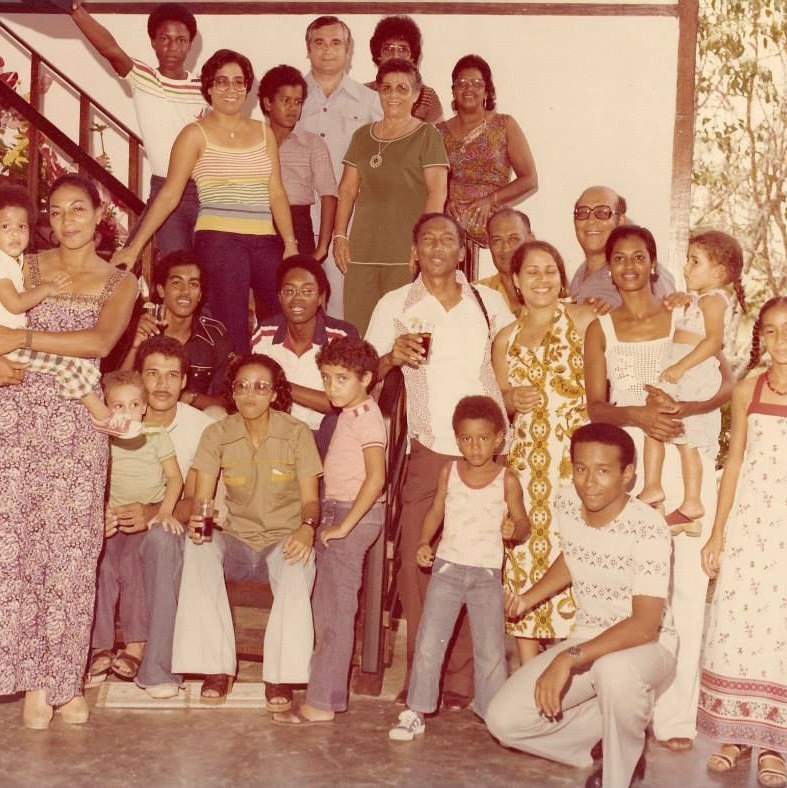
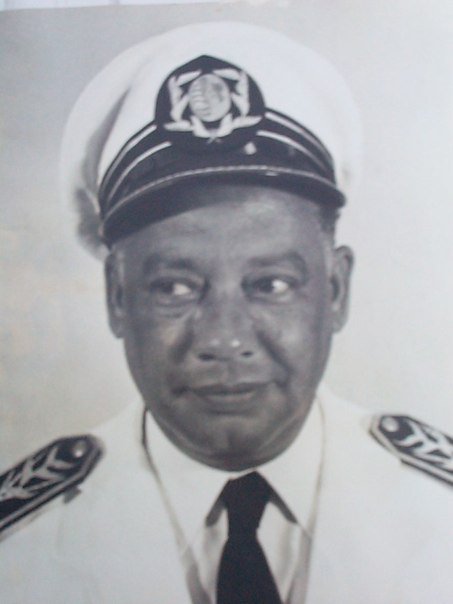
It is critical that we have this difficult conversation about policing in our cities. As Congresswoman Alexandria Ocasio-Cortez recently said in a viral Instagram post, defunding the police “looks like a suburb”. She accurately points out that suburban communities generally spend a larger percentage of their budgets on education and public health and a smaller percentage on policing as compared to urban communities like Cambridge. In nearby Lexington, for example, the police budget represents just 3% of overall spending compared to 9% of overall spending in Cambridge, while 70% of their budget goes to education, compared to 30% of Cambridge’s budget. We should be spending a lot less on racist policing and a lot more on education, community building and creating economic opportunity for our residents, with a heavy focus on undoing the harm that has been for so long done to our Black residents.
The suburbs themselves were created through racist, exclusionary policies designed to keep Black people out. Policies like redlining and the war on drugs systematically denied economic opportunity to Black people as urban policing and mass incarceration became the primary tools for maintaining the racist status quo. Modern day policing of urban centers is generally carried out by violent invasionary forces of suburban white males who oppress Black urban communities. Despite admirable efforts in recent years to diversify and tame our local police force, the Cambridge Police Department retains vestiges of our racist history of policing. I look forward to working with the Commissioner to dismantle these racist traditions and remake the police into an even less violent and less racist institution.
Cambridge Public Schools
During the discussions around the police budget, many folks rightfully pointed out that the police is not the only racist part of our budget. I have long shared that view, for instance I voted against the school budget (and the overall budget) in 2019 primarily because of the ongoing racism in the school department. I am the only current councillor to have done so.
The school department is racist because it disproportionately fails to educate Black and brown students to the same level as white students.
In 2019, the grade 3 literacy rate was 80% for white students but just 44% for African American/Black students. We see this trend across nearly every educational outcome we measure. Even worse, this type of racial achievement gap is enshrined into nearly all of the 2020 outcome goals. And all of the pre-COVID inequities were only exposed and magnified when the pandemic hit. Being anti-racist means identifying this inherent racism and actively counteracting it.
The School Committee and the School Department have begun to do this work with the new Building Equity Bridges initiative and the creation of the new Office of Equity, Belonging and Inclusion. I have been impressed with the direction and ambition of our four new School Committee members, as well as the leadership and transparency of Mayor Siddiqui. While I couldn’t vote “yes” on this section of the budget, my “present” vote reflects the newfound trust and confidence I have in my colleagues to accomplish even more together in the next year.
We also voted on a $237 million bond issue to rebuild the Tobin/Vassal school, which is partially named after a slave owner. During that discussion, the City Manager pointed out that we have already spent $13 million (before the shovels have even hit the ground) and that it will be a challenge to keep the entire project below $250 million. To put that figure in perspective, it is almost as much as we spent on the MLK/Putnam Avenue Upper School and the King Open/Cambridge Street Upper School combined, including all the additional facilities that were built or rebuilt at the latter facility: the Valente Branch Library, the Gold Star pool, and the new Cambridge Public School Department’s administrative building.
The future is very uncertain right now, and spending an eye-popping sum on replacing a functional school building in West Cambridge makes no sense to me. We could easily have delayed this allocation by a year while some of the uncertainty around COVID-19 becomes more clear. We haven’t even figured out what will happen in September, and I am hearing loud and clear from teachers, parents, and scholars alike that remote learning simply does not work.
As my son wisely observed, we should “just take that money and pay the extended day teachers more!” I would add that we should pay all the hardworking paraprofessionals in our schools better and expand those programs, which greatly help our minority students succeed. Imagine how much of a difference we could make for Black and brown working class families by investing that kind of money in creating real economic opportunity, providing internet access, healthcare, including mental health services, housing and transportation, and the list goes on.
IT Department (municipal broadband)
By forwarding the IT Department’s budget to the Council with an unfavorable recommendation, we sent a strong message to the City Manager that moving forward on municipal broadband is a must, and he subsequently promised to conduct the feasibility study that he has resisted for years. He announced at the June 15 City Council meeting that staff would work on a scope over the summer, and that he plans to come before the council next Fall with an appropriation. We need to make sure we hold his administration to this promise.
Thanks to all the activists, residents, and experts who have been pushing on this for many years. This is an amazing victory for democracy! The feasibility study itself will build on the digital equity study which I secured last term, an effort that has been delayed by about three months. The lack of updates on that effort have been incredibly frustrating, but the city has promised to deliver the study by October 2020.
The COVID-19 pandemic has served as another reminder that addressing the digital divide in our city is a critical part of our work on racial equity.
When mom and dad can’t work from home, and students can’t access their schoolwork online, economic and educational disparities are worsened and those stressors once again fall disproportionately on members of the Black community in Cambridge.
A look ahead
The FY22 budget cycle starts now and should involve lots of community meetings that dig deep to better understand what needs to change in our budget and our government to make the next budget an anti-racist budget. This is the single most consequential decision the council makes each year, yet the budget process is too brief and devoid of opportunities for the community to weigh in. In addition to community meetings, the Finance Committee should schedule hearings now to begin discussing the FY22 budget priorities.
We also need to come together as a community and find immediate ways to spend some of our free cash to do justice and create economic opportunities for Black community members.
In addition to the budget and finance work, I’m also committed to working on dismantling our dangerous and racist system of policing as chair of the Public Safety Committee. My analysis of the CPD Use of Force Policy shows that it does not meet the basic policy recommendations of the 8 Can’t Wait campaign. There will be a hearing on Tuesday July 7 at 1 PM to discuss how we can improve this policy, which has not been comprehensively updated since 2011.
I’ve also requested a copy of the Police Department’s annual report to the City Manager, which contains an inventory of the department’s materials and equipment. Hopefully the City Manager will release this report by the July 27 summer meeting as requested, so we can have a conversation around disposing of any military or military-grade equipment that the department has. I don’t want to waste time splitting hairs over what something is classified as, we simply don’t need police armored vehicles driving around the streets of Cambridge. Finally, I am excited to work with my colleagues on exploring alternative approaches to responding to emergency calls, like the CAHOOTS program in Eugene, Oregon which responds to mental health 911 calls with specialized first responders, not armed police officers.
In addition to all of this my office will continue its ongoing work around housing justice, tenant protections, digital equity, and environmental justice which form essential components of an antiracist agenda. I genuinely look forward to this work and to building even stronger partnerships with Black leaders in our community as we move forward together. The world is very broken right now, and America is a deeply racist country. Those are depressing facts that cannot be easily fixed. Being entrusted with the responsibility of doing this important work is something I cherish every day as someone who came to the US as a teenager, escaping dictatorship and oppression in my home country. Thanks to all who are and have been doing this work and may we be ever more successful.
